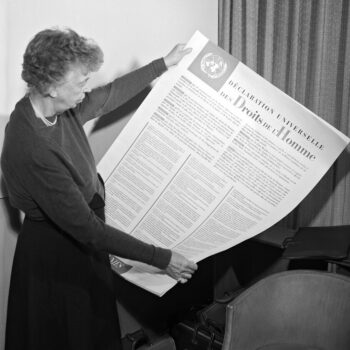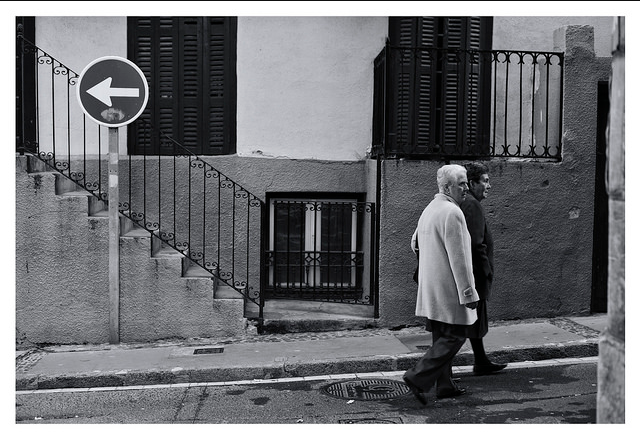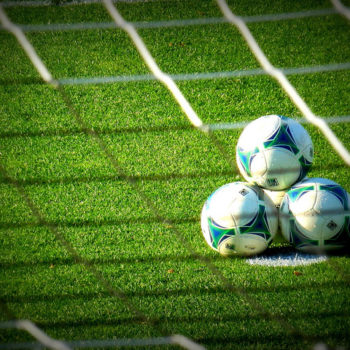He who asks a question remains a fool for five minutes.
He who does not ask remains a fool forever.
-Chinese proverb.
The hail pounded loudly on the roof of the field house, but the basketball game drew the fan’s attention away from the inclement weather outside. The final quarter was approaching, and the bleachers seemed to buzz with excitement. It was one of our biggest rivalry games on our travel team, and having lost the previous contest, the pressure to perform was on. The game was a tight one, with neither side seeming to have gained an advantage so far. The players on both teams were exhausted, and it was an aggressive game overall.
As we entered the final quarter we were beginning to fall behind on the scoreboard, the other team’s points seeming to tauntingly increase past our score with every passing second. Our team tried our best to rally, and we began to close in on their lead, but the clock was our biggest enemy. With around 3 minutes left in the final quarter, one of our point guards sauced through their defense and made it to the basket, lowering their lead to a measly 3 points, a amount that we believed could be easily overcome in the next three minutes.
With two minutes left and the game still tied the crowd was becoming antsy, and their nervousness permeated into our play still. One of my teammates made a poor pass that was intercepted by the other team, leading to a 2 point deficit with little time to go,“time out!” I heard from our bench.
Our coach had used one of his few remaining timeouts with two minutes left to play and I was furious. “Why is he wasting a time out when we still have so much time left in the game?” I asked one of my teammates as we jogged to the bench. “Just listen” was the response I got in return, but the anger of his decision was still on my mind. With this anger buzzing around in my head, I tried to listen to what he was saying. He had recognized a weakness in their defense and was setting up a play to take advantage of it and score a precious basket or two. While he did his best to explain the play, and everyone else seemed to understand it, the combination of my exhaustion and my anger led me to be unable to comprehend just what he had in mind. “Alright, everyone gets what they have to do?” he asked. Not wanting to further anger my teammates and my coach by delaying our start, I decided not to ask a clarifying question about my job in the play, and decided to assume what he would want me to do instead.
Yes, in hindsight this was a mistake, and a big one.
I never learn anything talking. I only learn tings when I ask questions.
-Lou Holtz
With a minute and a half to go in the 4th, we in-bounded the ball on our half of the court and ran the play. What I later learned was that the play was a rather complex one, and I had greatly overestimated my ability to figure it out as it went. The play involved a few separate picks, a distracting cutter, and one of our point guards eventually hitting a three-point shot that would tie the game. It turned out that I had one of the more complex parts of the play, with them relying on me to make a crucial pick for one of our point guards.
The play began and the crowd rose to their feet, as they realized the importance of this play to the outcome of the game. Little did they know, my lack of courage to ask a simple question was about to jeopardize the entire operation. Luckily for myself, I had faintly remember the coach telling me to go and set a pick on one of our point guards, an action which I completed well enough, and after that I stepped aside from the play, my job was done. What I didn’t realize at the time was that I still had an important distracting cut to make, one that would draw the other team’s defense away from our most accurate shooter.
“Riley, cut, Cut Riley!” was what my coach hollered from the sidelines, but it was too late, as we had already in-bounded the ball to our shooter, who was soon to go up for his shot. With the absence of my cut from the play he was tightly covered, but still managed to dribble and get a shot away. Despite his initial dribble and shoot skills he was under immense defense pressure at the time, and it showed in his shot quality. The ball clattered off the rim before falling to one of the other team’s players, an action that led them to dribble quickly down the court and score another two points, putting us down by five with a minute to go. Our coach used his final timeout and was furious with me, a fact I could tell from his facial expressions, but he had no time to scold me before we got back out on the court.
The remaining minute of game-play expired with astounding speed as the other team kept their five-point lead. The buzzer as the final second disappeared was one of the most painful noises I have heard from a sports game, as I knew I had indirectly caused the downfall of our rivalry game. As we went to the post game huddle my coach angrily asked me why I had failed to accomplish such an important part of the play, and with shame I had to respond that I had no idea that he had even wanted me to do it. “Well then ask a question next time!” he growled, leaving me to walk the line of shame to the other team’s handshake line.
Shame is a soul eating emotion.
-C.G. Jung
In the weeks to come I asked myself again and again why I had been so afraid to ask a question. In hindsight, I realized that even if my question had caused them to become slightly angered, it would be miles better than the outcome of that game. While I can not guarantee that the outcome of the game would have been changed in our favor if I had asked a question, I am sure that it would have made a positive impact, not only on the score of the game, but how I felt afterwards.
Photo by xparxy on Foter.com / CC BY-NC-ND
Photo by muffinn on Foter.com / CC BY
Photo on Foter.com















